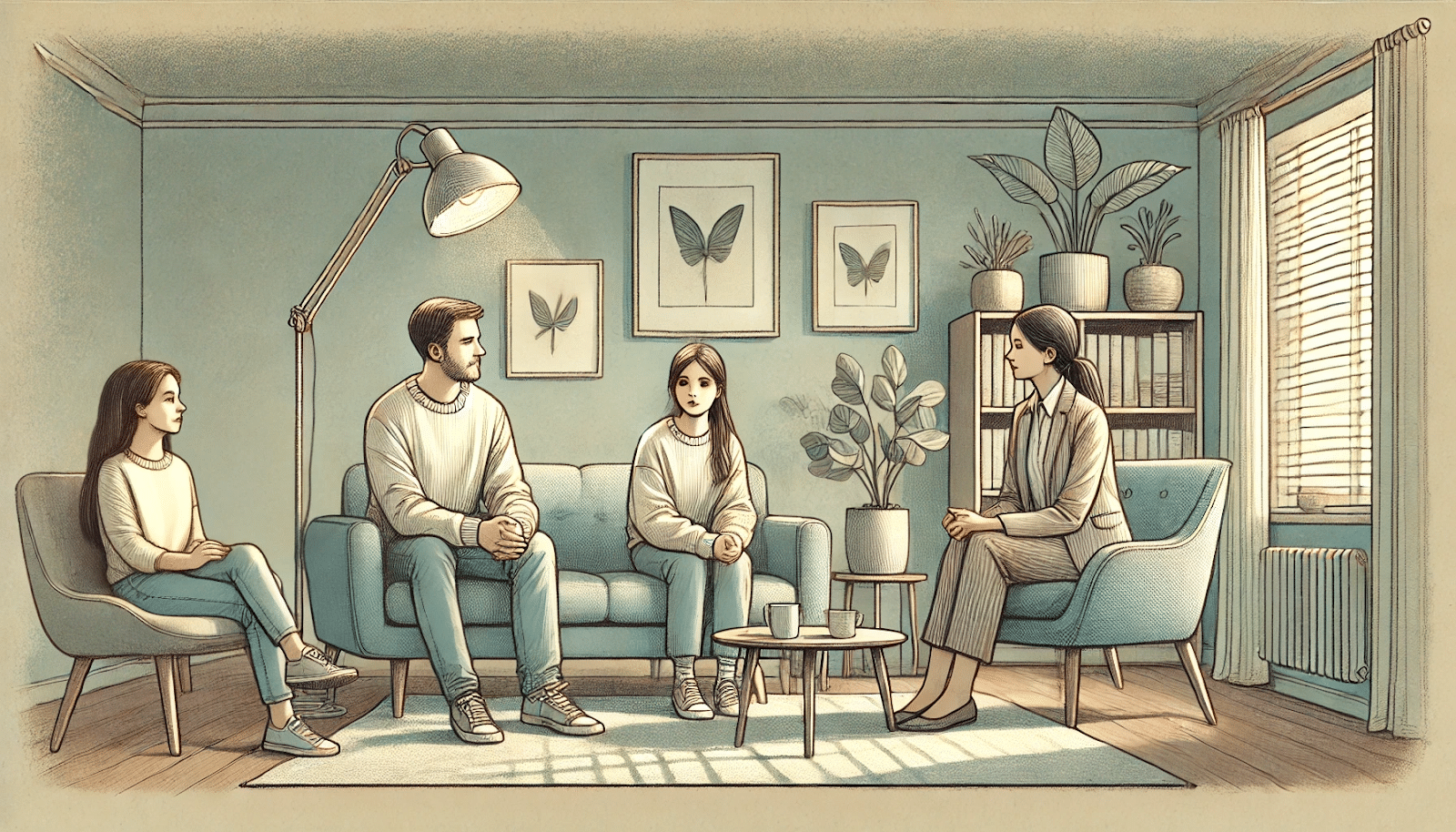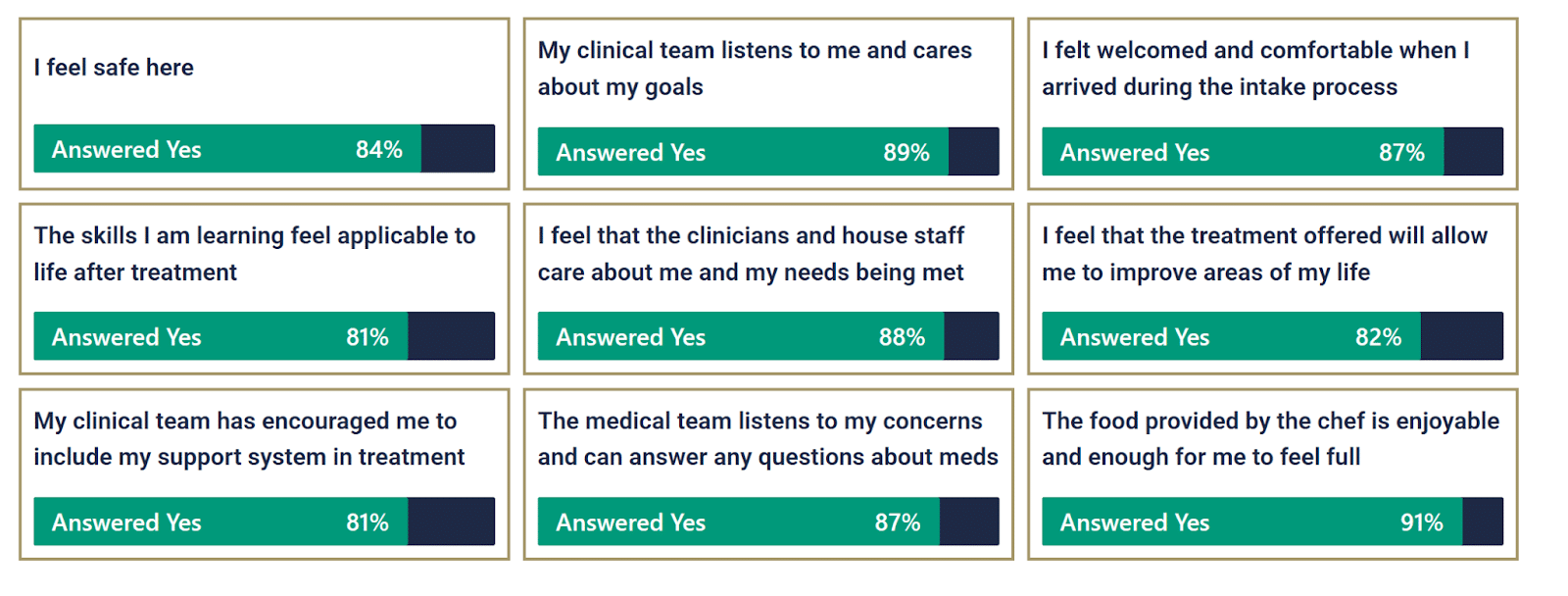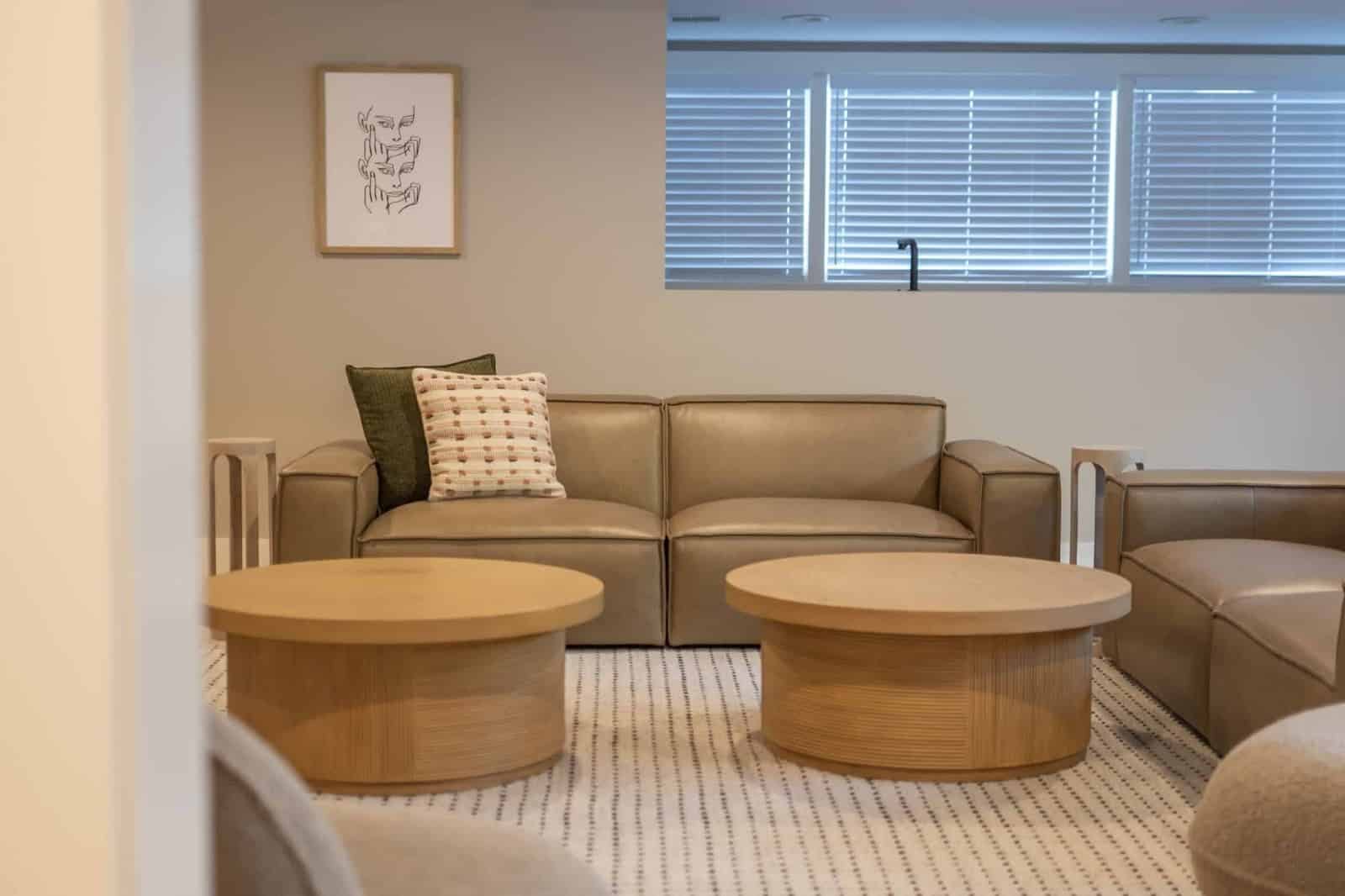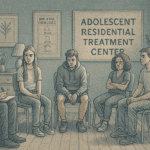Key Takeaways
- Assessing your teen’s needs and evaluating center credentials are crucial steps in choosing the right facility.
- Residential treatment centers offer a structured environment for teens requiring intensive support.
- Outpatient programs provide flexibility, allowing teens to maintain daily activities while receiving treatment.
- Cognitive Behavioral Therapy (CBT) and Dialectical Behavior Therapy (DBT) are effective techniques used in treatment.
- At Mission Prep Healthcare, we provide a unique therapeutic approach for teenagers with innovative interventions – we address the entire family system while offering comprehensive care from board-certified and experienced mental health professionals from various disciplines.
Choosing the Best Teen Mental Health Treatment Center
Finding the right mental health treatment center for your teen can be challenging, especially with the variety of options available in California. Start by focusing on the specific needs of your teen and how different centers can address those needs.
Identifying Teen Mental Health Challenges
Teens today face a myriad of mental health challenges, from anxiety and depression to more complex conditions like bipolar disorder. Recognizing these challenges early aids effective treatment. Look for signs such as changes in behavior, withdrawal from social activities, and academic struggles. These can indicate that your teen may benefit from professional help.
Try to communicate openly with your teen about their feelings and experiences to get valuable insights about their mental health. Encouraging them to express their emotions can help identify any underlying issues that may require professional intervention.
Mission Prep Healthcare specializes in mental health treatment for teens aged 12-17, offering residential and outpatient programs for anxiety, depression, trauma, and mood disorders. Our therapies include CBT, DBT, EMDR, and TMS, tailored to each adolescent’s needs.
With a structured, supportive environment, we integrate academic support and family involvement to promote lasting recovery. Our goal is to help teens build resilience and regain confidence in their future.
Types of Teen Mental Health Treatment Centers
Inpatient Psychiatric Hospitals
Inpatient psychiatric hospitals are designed for teens experiencing severe mental health crises, such as suicidal ideation or psychosis. These facilities offer acute care and stabilization, with medical professionals available around the clock to provide immediate intervention.
Teens admitted to inpatient hospitals receive intensive therapy and medication management to address their immediate needs. The goal is to stabilize their condition so they can transition to less intensive forms of treatment, such as residential or outpatient programs.
Residential Treatment Centers
Residential treatment centers provide a structured and supportive environment for teens who require intensive care. These centers offer 24/7 supervision and a range of therapeutic activities designed to address various mental health issues. They are particularly beneficial for teens who have not responded well to outpatient treatment or need a safe space away from their usual environment.
Within residential treatment, teens participate in individual and group therapy sessions, educational programs, and recreational activities. This comprehensive approach aims to improve their mental health while equipping them with skills for long-term recovery.
Outpatient Programs
Outpatient programs offer flexibility for teens who need support but can maintain their daily routines. These programs allow teens to attend therapy sessions and other treatments while continuing to live at home and attend school.
Outpatient programs are ideal for teens with mild to moderate mental health issues (e.g., generalized anxiety disorder, depression) who have a strong support system at home. They provide a balance between receiving professional help and maintaining a sense of normalcy in daily life.
Effective Techniques in Teen Mental Health Treatment
Cognitive Behavioral Therapy (CBT)
Cognitive Behavioral Therapy (CBT) is a widely used technique that focuses on changing negative thought patterns and behaviors. It helps teens identify and challenge distorted thinking, leading to healthier emotional responses and behaviors.
CBT is effective for treating anxiety, depression, and other mood disorders. It empowers teens by teaching them coping strategies and problem-solving skills, which are essential for managing their mental health in the long term.
Dialectical Behavior Therapy (DBT)
Dialectical Behavior Therapy (DBT) is another effective technique used in teen mental health treatment. Originally developed for borderline personality disorder, DBT has been adapted to address a range of mental health issues, including emotional regulation and interpersonal effectiveness.
DBT combines individual therapy sessions with skills training groups, where teens learn techniques for managing emotions, improving relationships, and tolerating distress. This approach is particularly beneficial for teens in danger of self-harm or having suicidal thoughts.
Family Therapy

Family therapy recognizes that a harmonious and supportive family environment can significantly enhance a teen’s recovery.
Family therapy sessions often address family dynamics and patterns that may contribute to a teen’s mental health issues.
During these sessions, family members learn effective communication strategies, conflict resolution skills, and ways to support the teenager’s mental health journey.
Medication Management
For some teens, medication can be a vital tool in managing symptoms of mental health disorders such as depression, anxiety, or ADHD. However, note that medication is often most effective when combined with therapy and other supportive measures.
In a treatment center setting, psychiatrists and medical professionals carefully assess a teen’s need for medication. They consider factors such as the teen’s medical history, current symptoms, and potential side effects before prescribing medication.
Regular follow-ups ensure that the medication remains effective and any necessary adjustments are made.
Choosing the Right Treatment Center

Choosing the right treatment center for your teen involves careful consideration of various factors.
Assessing Your Teen’s Needs
Consider factors such as the severity of their condition, any co-occurring disorders, and their previous treatment experiences. This information will help you identify the level of care and type of treatment that would be most beneficial.
Engage in open discussions with your teen and their current healthcare providers to gain insights into their needs and preferences. This collaborative approach ensures that the chosen treatment center aligns with the teen’s goals and expectations.
Evaluating Center Credentials
Look for centers that are licensed and accredited by reputable organizations, as this indicates a commitment to high standards of care. Plus, research the center’s track record in treating teens with similar conditions to your child.

For example, at Mission Prep Healthcare, we surveyed our patients to assess their satisfaction with our mental health programs. In 2024, we achieved scores of 81% and above across various metrics, reflecting outstanding client satisfaction.
Considering Staff Experience
Ensure that the center employs licensed professionals, such as psychiatrists, psychologists, and therapists, who specialize in adolescent mental health. Experienced staff can provide effective, evidence-based treatment customized to the unique needs of teens.
Location and Environment Factors
The location and environment of a treatment center can significantly impact your teen’s comfort and engagement in the program. Consider if a center’s location is convenient for your family and if its environment is conducive to healing. For example, in California alone, we have a few Mission Prep Healthcare centers:
- Rancho Palos Verdes – Oceanaire
- Rancho Palos Verdes – Harborview
- Rancho Palos Verdes – Martingale
- Rancho Palos Verdes – Silver Spur
- Rolling Hills Estates – Sunnyfield

We also have a residential mental health treatment center for teenage boys and male-identfying youth in and adolescents in Bonsall – Eagle Mountain, San Diego County.
Some families may prefer centers in serene, natural settings, while others may prioritize proximity to home.
Program Flexibility and Customization
Every teen’s mental health journey is unique, and the best treatment centers recognize this by offering flexible and customizable programs. Look for centers that customize their treatment plans to the individual needs of each teen, allowing for adjustments as progress is made.
Financial Consideration for Treatment
Finances are an important factor when choosing a mental health treatment center for your teen. Many centers accept insurance, reducing out-of-pocket costs – while others offer flexible payment plans or financing options for uncovered expenses. Checking insurance coverage and available payment arrangements can help you plan effectively.
For those facing financial challenges, grants, scholarships, and sliding scale fees, like those at Mission Prep Healthcare, can make treatment more accessible. Exploring these options ensures your child gets the care they need without excessive financial strain.
Mission Prep: Making a Difference for Your Teen

With Mission Prep Healthcare, you’re not just selecting a treatment center, you’re choosing a partner committed to your teen’s sustainable recovery and family’s wellbeing.
At Mission Prep Healthcare, we recognize that choosing the right treatment center is a pivotal decision in your teen’s recovery journey. While residential centers provide structured environments for intensive support and outpatient programs offer flexibility, our approach goes beyond traditional care models.
We’ve developed a unique therapeutic methodology that blends evidence-based techniques like Eye Movement Desensitization and Reprocessing (EMDR), Transcranial Magnetic Stimulation (TMS), and CBT with innovative interventions created for each teen’s specific needs. Our comprehensive family-centered approach addresses not just the individual but the entire family system, which we believe is essential for creating lasting change.
What truly sets us apart is our team of board-certified psychiatrists and specialized mental health professionals who conduct thorough evaluations to identify the root causes of your teen’s struggles. With centers in California and Virginia, we provide personalized treatment in a safe, welcoming environment where healing can flourish.
Your teen deserves care that’s as unique as they are. Contact us today to learn how we can support your teen’s journey toward mental wellness.
Frequently Asked Questions (FAQ)
What is the difference between residential and outpatient programs?
Residential programs provide 24/7 care in a structured environment, making them ideal for teens needing intensive support. In contrast, outpatient programs allow teens to live at home while attending scheduled therapy sessions, offering more flexibility for those with mild to moderate mental health issues.
How can I tell if my teen needs professional mental health treatment?
Signs that your teen may need professional treatment include persistent changes in mood, behavior, or academic performance. If your teen exhibits signs of anxiety, depression, or other mental health issues that impact their daily life, seeking professional help is advisable.
What qualifications should I look for in treatment center staff?
Ensure that the treatment center employs licensed professionals such as psychiatrists, psychologists, and therapists with expertise in adolescent mental health. Staff should have experience in evidence-based therapies and a track record of working effectively with teens.
How long does treatment typically last?
The duration of treatment varies depending on the teen’s specific needs and the type of program. Residential treatment programs often last from 30 to 90 days, while outpatient programs may continue for several months. The length of treatment can be customized for each individual and can be adjusted based on their progress and goals.
What specific mental health conditions does Mission Prep treat?
At Mission Prep Healthcare, we provide specialized treatment for a wide range of adolescent mental health challenges including anxiety, depression, trauma and PTSD, mood and thought disorders, technology dependence, and academic and social challenges. Our comprehensive evaluation process identifies the unique needs of each teen, allowing us to develop personalized treatment plans that address both the symptoms and underlying causes of their struggles.





















